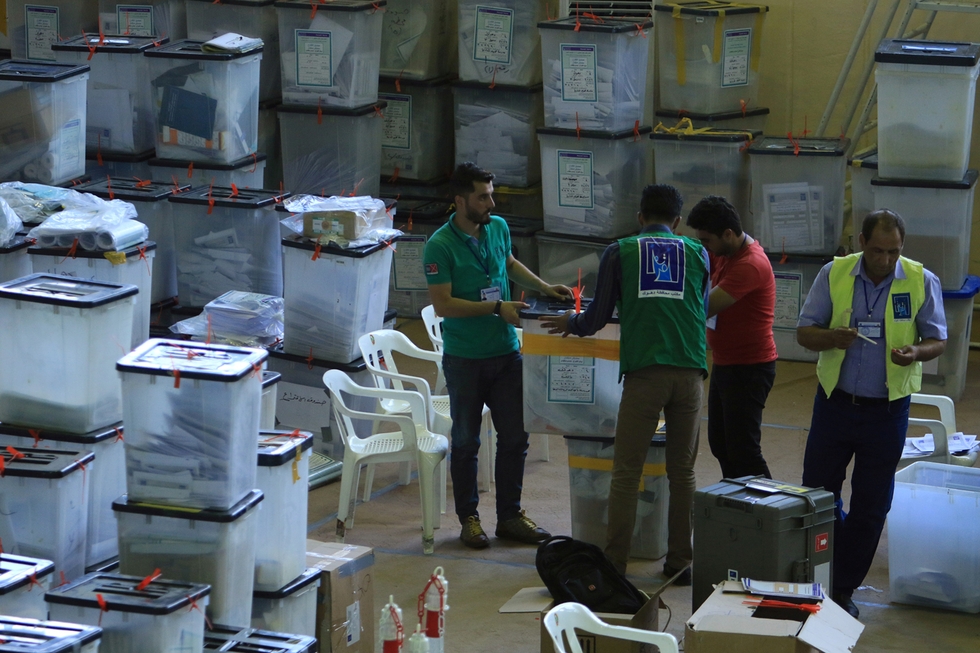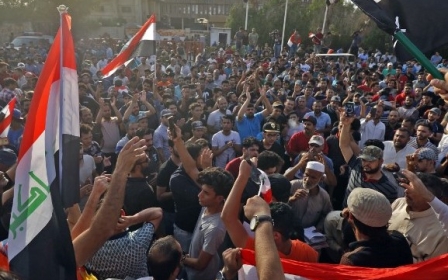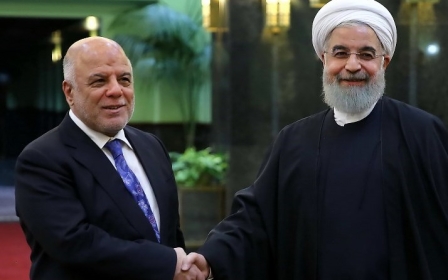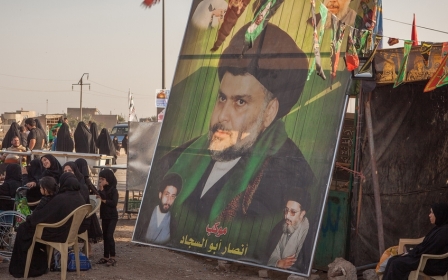Iraqi election recount results ratified, paving way for government formation

A recount of votes cast in Iraq's disputed parliamentary elections were backed by the country's supreme court on Sunday, making the results official and finally paving the way for the formation of a government after months of delay.
Supreme court spokesman Iyad al-Samouk announced it had ratified the results of a manual recount announced last week, which supported the initial results that placed Shia cleric Muqtada al-Sadr in the lead, despite widespread claims of voter fraud after the May election.
The ratification makes the results formal and lawmakers now have to gather and elect a speaker, then president and finally a prime minister and cabinet within 90 days.
Allegations of fraud prompted the recount, but the only change that came from it was an extra seat for the Fatah Alliance of pro-Iranian former paramilitary fighters, which remains in second place. There are 329 seats in the Iraqi parliament.
The original 12 May poll involved a new electronic system for tallying votes cast, rather than counting voting slips manually - a process that has been criticised as being ripe for abuse.
A panel of judges overseeing the recount later limited its scope, ruling that it would only cover suspect ballots flagged in formal complaints or official reports on fraud.
Overseas votes cast in Iran, Turkey, Britain, Lebanon, Jordan, the United States and Germany were recounted.
Sadr presents himself as a non-sectarian nationalist opposed to both the United States and Iran's influence over his country. The Iraqi Communist Party forms part of Sadr's Sairoon Alliance.
The top three winning blocs, all Shia-led, have upwards of 140 seats between them. At least 165 seats are needed to form a government, although traditionally the ruling bloc in parliament tends to be larger so as to include Sunni Arab and Kurdish lawmakers.
The political uncertainty over the make-up of the new government has raised tensions at a time when public impatience is growing over poor basic services, unemployment and the slow pace of rebuilding after a three-year war with the Islamic State militant group.
Middle East Eye propose une couverture et une analyse indépendantes et incomparables du Moyen-Orient, de l’Afrique du Nord et d’autres régions du monde. Pour en savoir plus sur la reprise de ce contenu et les frais qui s’appliquent, veuillez remplir ce formulaire [en anglais]. Pour en savoir plus sur MEE, cliquez ici [en anglais].




